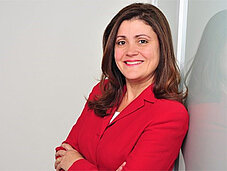
Simulation of Industrial Mixing Processes
The rheology of mixing and stirring processes

Learn the basics of industrial mixer design and how to assess and improve mixing processes using Ansys Fluent. This training is offered as a 1-day course.
Duration
1 day
Prerequisites
Knowledge of Ansys Fluent
Software used
Ansys CFD
- Design principles relating to different types of stirrer used for industrial applications
- Assessing and optimizing drive power & mixing quality
- Differenting and applying different approaches to modeling
- Simulating laminar mixing processes using Ansys Fluent
Description
Mixing is an important operation in many industrial processes, which always involves trade-offs between uniformity, product quality and cost. Process development engineers are faced with the task of either optimizing the design of existing mixers or devising stirring apparatuses that are tailored to specific mixing processes. Laminar mixing of highly viscous fluids result in particular challenges. This training course involves studying firstly the basic principles of designing industrial mixers and then also the main approach to assessing and improving mixing processes using Ansys Fluent. You will get to know a variety of Ansys-Fluent-based modeling techniques that can be used for designing, analyzing, and optimizing stirrers (both turbulent and laminar mixing). Multiple reference frame (MRF), sliding mesh and the tracer technique for assessing mixing performance will be covered as well. After an introduction to the rheology of mixing and stirring processes, we deal with the analysis of laminar mixing processes.
Several practical Ansys-Fluent-simulation-based workshops help to apply and consolidate your newly acquired knowledge. This training is aimed at CFD users and engineers involved in the design, assessment, and control of mixing processes in the chemical, petrochemical, and pharmaceutical sectors, spheres of water treatment and the food industry.
Detailed agenda for this 1-day training
Day 1
01 Designing a Stirrer Vessel using Ansys CFD
- Shaken or stirred?
- Design principles and selection parameters
- Main characterisitcs of impellers and dimensionless numbers
- Introduction to and application of the multiple reference frame (MRF)-approach to modeling
- Workshop: determining the drive power of a stirred vessel, and designing the motor
02 Determining and Assessing both the Mixing Time and Homogenization using Ansys CFD
- How long mixing take? Using the tracer technique to determine mixing time
- What is the quality? – Assessing mixing quality by means of particle tracking
- Examining the effects of scaling
- Workshop: calculation of the mixing time and the mix quality in a stirred vessel reactor via the MRF approach
03 Mixing Rheological Fluids
- Basic principles of rheology
- Viscous mixing and non-Newtonian fluids
- Introduction to and application of modeling using the sliding mesh approach within Ansys CFD
- Workshop: simulation of stirred vessel reactors that have co-axial mixers and moving or fixed anchors (involving a non-Newtonian fluid)
04 Other Approaches to Mixing and Pump-based Mixing
- Jet mixing in large tanks
- Injectors and spargers
- Multi-tee mixers
- Static mixers
- Workshop: static mixing of highly viscous non-Newtonian fluids
Your Trainers

Dr.-Ing. Luciana Rudolph
Placement in the CADFEM Learning Pathway
Participant data
Additional information
Commentary
Whether eLearning, classroom courses, live online training or customized workshops - together we identify the best option for you.
Do you have questions on the training?
If you book through your university, you will receive a 50% discount on the stated fee on training courses and eLearning courses.
For more information on the validity and how booking with the code ACADEMIC50 works, please visit our page on training for academic users.
Straight after you sign up, an automatic confirmation of receipt will be sent to the email addresses you provided. Once you have successfully verified the data you provided, you will receive your personalized sign-up confirmation, containing further information on course fees, the billing address, etc., by email within two to three working days.
As soon as the minimum number of attendees has been reached, you will receive a final training confirmation containing further information. If you have booked an on-site training, we recommend that you wait until you have received this final confirmation before booking your travel and accommodation.
If the minimum number of attendees is not reached, we reserve the right to cancel the training seven days before it is due to start at the latest. We are happy to inform you on changing your booking to an alternative date. Please note that we accept no liability for hotel or travel bookings that attendees have already made.
Usually the training courses start at 9:00 am and end at 5:00 pm of the respective local time. The actual course times will be stated in the booking confirmation. Please note that, depending on the training host, there may be a possible time shift between your and the provider's local time. Therefore all local times are provided with the valid time shift to Greenwich Mean Time (GMT).
The training includes intermediate and final exercises to practice the elements covered in the training. The trainer will present the resolution of these exercises and will check the good understanding of each module of the course with the help of MCQ. A training certificate will attest to the validation of the knowledge assessment for each module and for the overall training.

Disability and Quality Referent




